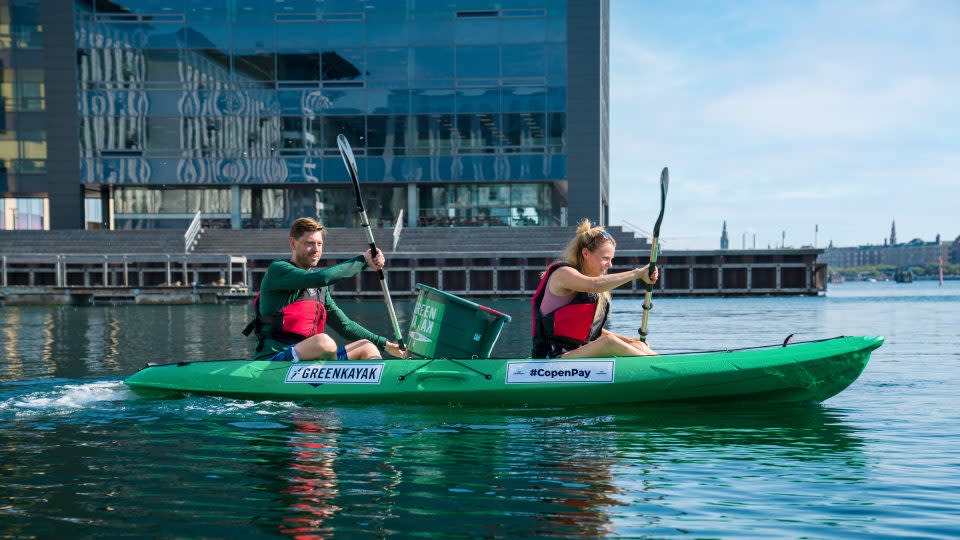Copenhagen wants to do tourism differently by rewarding visitors with free coffee, food and museum passes if they cycle in the city and keep it clean
This summer, Europe’s most popular hotspots are fighting back against mass tourism.
Whether in Barcelona, where protestors are spraying water at visitors, or in Athens, where overtourism has come to a head, European cities are rethinking how they operate an economically important industry that has resulted in fraught ties with locals.
Copenhagen has an answer to turning tourism from a negative force to a positive one: by rewarding visitors for making a positive impact, by cleaning up the city or biking from place to place.
The city’s CopenPay program offers “carrots” to tourists who take climate-friendly actions through a free lunch, coffee, kayak tour or museum entrance.
The pilot project, which will kick off on July 15, has 24 attractions that can count towards the rewards, ranging from bike rentals to The National Gallery of Denmark.
The goal is to encourage visitors to make conscious choices that will impact the Danish capital while incentivizing them with entrances to the city’s key attractions. For instance, the Copenhagen Surf School will provide free lunch to surfers who help with 30 minutes of beach cleaning following their surf lesson.
“It is an experimental and a small step towards creating a new mindset amongst travelers,” said Mikkel Aarø-Hansen, CEO of Wonderful Copenhagen, the city’s official tourism organization, in a statement.

The group cited data that found that tourists were often very willing to act sustainably, but only a small fraction changed their actions, spurring Copenhagen to adopt a new approach “built on trust.”
Wonderful Copenhagen says the initiative is not meant to increase tourism but merely promotes a better way to go about it.
"With this specific project, our focus is on fostering sustainable practices and enhancing the travel experience for those who are already here, rather than attracting more tourists. And maybe, to inspire other cities to adopt Copenpay, if the pilot project turns out to be a success," Rikke Holm Petersen, Wonderful Copenhagen's communications and marketing director, told Fortune.
The tourism tug-of-war
Europe has always been a destination for picturesque vacations. But recently, it has also become an example of the downsides of mass tourism.
Locals often face the impact of overtourism, which can harm their overall quality of life and cost of living.
In Madrid, for instance, locals have been priced out of the housing market due to limited social housing, worsened by a growth in holiday rentals to cater to tourists. Meanwhile, Barcelona announced a ban on Airbnb-style short-lets from 2029 to free up the housing supply for locals.
Amsterdam has also clamped down on overtourism by tightening rules around smoking weed and new hotel construction.
Iceland has also been on the receiving end of a visitor boom, and it plans to introduce a tourist tax on hotels, campsites, cruise ships and more.
These measures point to how popular European destinations have a delicate balance to strike between curbing visitor numbers without discouraging them entirely. Tourism is a key revenue generator and employer for many of their economies.
If Copenhagen’s pilot project succeeds at turning tourism into a force for good, it could set an example for other cities to adopt.
“We must turn tourism from being an environmental burden into a force for positive change, and one important step in this transformation is to change how we move around on the destination, what we consume, and how we interact with the locals,” Wonderful Copenhagen's Aarø-Hansen said.
Update, July 11, 2024: This article has been updated with a comment from Wonderful Copenhagen.
This story was originally featured on Fortune.com

 Yahoo Finance
Yahoo Finance 